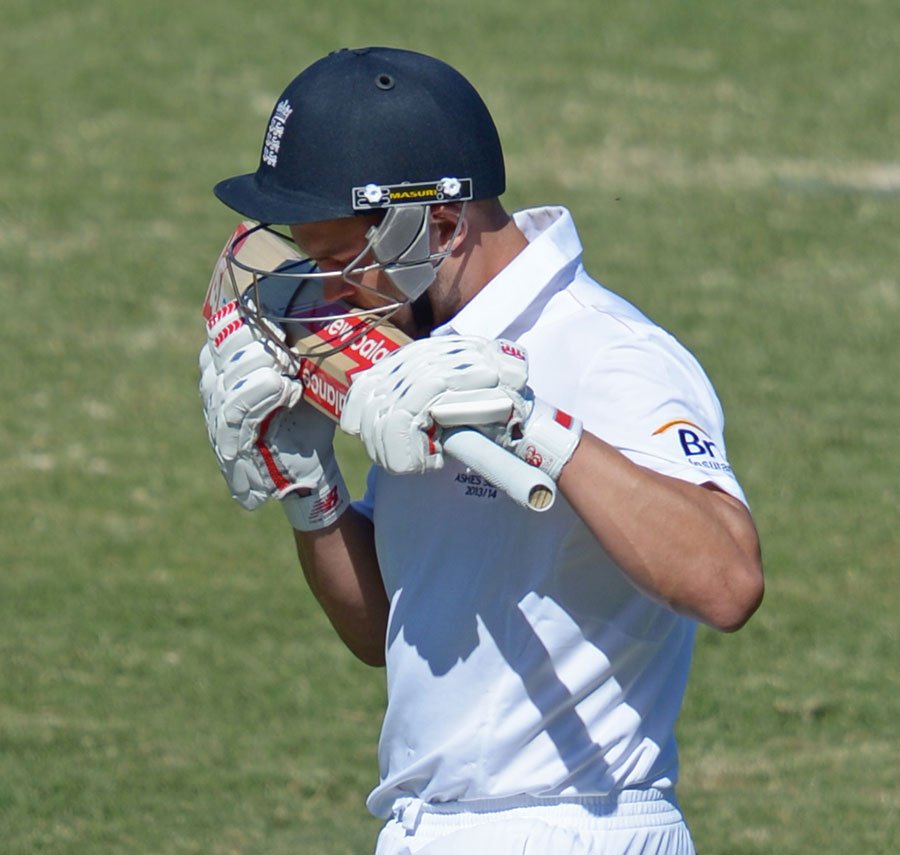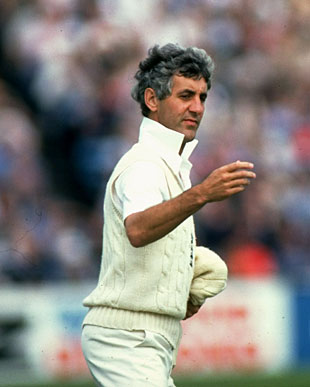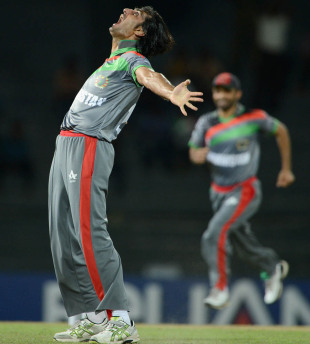Ed Smith in Cricinfo

Can a sportsman's life entirely or satisfactorily explain his sporting achievements? © Associated Press
Do great sportsmen have interesting lives? Does that matter? In searching their autobiographies, do we learn very much about what makes them so good on the pitch, or are the important truths already out there on the field, clear for all to see?
I recently bought a bunch of sporting biographies and autobiographies. They were all okay, but I began to question the methodology. One player claimed his childhood poverty made him a great player, another thought his parents' relative affluence gave him a crucial head start. One player thanked his loving family, another felt his fractured home life provided the hunger to succeed. One player argued his incessant practising as a child made the difference, another believed he had been helped by not practising too narrowly and by retaining a sense of play.
Of course, each narrative might be true: what works for one person doesn't necessarily work for another. But surveying all the books together, a rival explanation seemed more true to me: none of these back-stories, none of these paths to greatness, had any real relevance. The harder each book tried to use biography to "explain" the career under review, the less it succeeded.
When I was working for the Times, I once shared a lift with a journalist who had just returned from interviewing a major film star. She was complaining about how unforgivably boring she was. The presumption, of course, was that famous people had a responsibility to have interesting lives. Being an excellent actor was not enough; they had to entertain the media as well - the life had to be the equal of the work. But why? Shouldn't we just be thankful for the great performances?
I've written here before that I am sceptical about the expectation that sportsmen ought constantly to explain to the media how and why they play sport, that they must decode their competitiveness and creativity. That column was written from the perspective of an ex-pro: players should be given some space to live and breathe.
I write now wearing a historian's hat. I have lost confidence in the idea - widely held - that the way to understand what makes sportsmen excel can be found in a catalogue of biographical details. The presumption of modern sports coverage is that we learn about a great athlete by using a zoom lens to follow him off the pitch, down the tunnel that leads to the locker room, then track his car journey home, all the way back to his home town and family life - on and on, until we know the "real man" and understand "what makes him tick", as though his life is a just a jigsaw puzzle with a given number of pieces.
| As an ex-sportsman, who has lived inside the dressing room, I know how normally unexceptional people can do remarkable things out on the pitch | |||
There is a rival view. To reach the top in sport, with all the exceptional discipline and sacrifices that are called for, sportsmen often have to accept a sublimation of their civilian lives. Pursuing and achieving greatness on the pitch comes at a cost. The force that feeds their life must be channelled relentlessly towards the pursuit of victory, the honing of a craft and the nurturing of competitiveness. Often there is not much juice left in reserve.
In this respect, sportsmen have much in common with artists. The poet Edward Thomas, killed in the First World War, captured this brilliantly: "Most lives of poets stand to their work as a block of unhewn marble stands to the statue finished and unveiled… We read their lives after their poetry and we forget them. It is by their poetry that they survive."
Thomas' point is that the relationship between "life" experience and artistic output is complex: some mysterious alchemy turns the former into the latter. That is where the magic lies. I am beginning to suspect the same applies to great sportsmen. Of course, they must have a life that feeds their sport. But the life does not entirely or satisfactorily explain their sport. In fact, looking to autobiography to explain how sportsmen play obscures the truth more often than it illuminates it.
There are always exceptions, players whose lives are central to every move they make on the pitch. You cannot tell the story of Muhammad Ali the boxer without devoting space to Muhammad Ali the man. It is impossible to explore his bravery and resilience in the ring without acknowledging there is another story, even greater, about race and civil rights, Vietnam and American identity. His great life is as interesting as his great sporting deeds.
But how many Alis are there? Very few. Far more often, the sport emerges from an apparently routine and mundane life. As an ex-sportsman, who has lived inside the dressing room, I know how normally unexceptional people can do remarkable things out on the pitch. They are two different people, the man and the player.
This is one of the reasons I still watch great sport with a sense of wonder. When I see a sportsman at the limit of his defiance, bravery and self-belief, I know there is very often a normal, flawed human being coexisting with the apparently invulnerable champion. Rafael Nadal, one of the world's toughest and most unblinking sportsmen, calls himself "the Clark Kent of tennis". (To be fair, though it runs against my opening paragraph, he made the comment in an autobiography.) Nadal might be Superman on the court, but he remains as shy and unconfident man in the rest of his life.
How? Because he is a great sportsman - unremarkable and exceptional, all at once.



